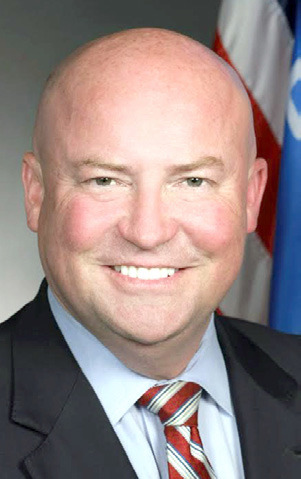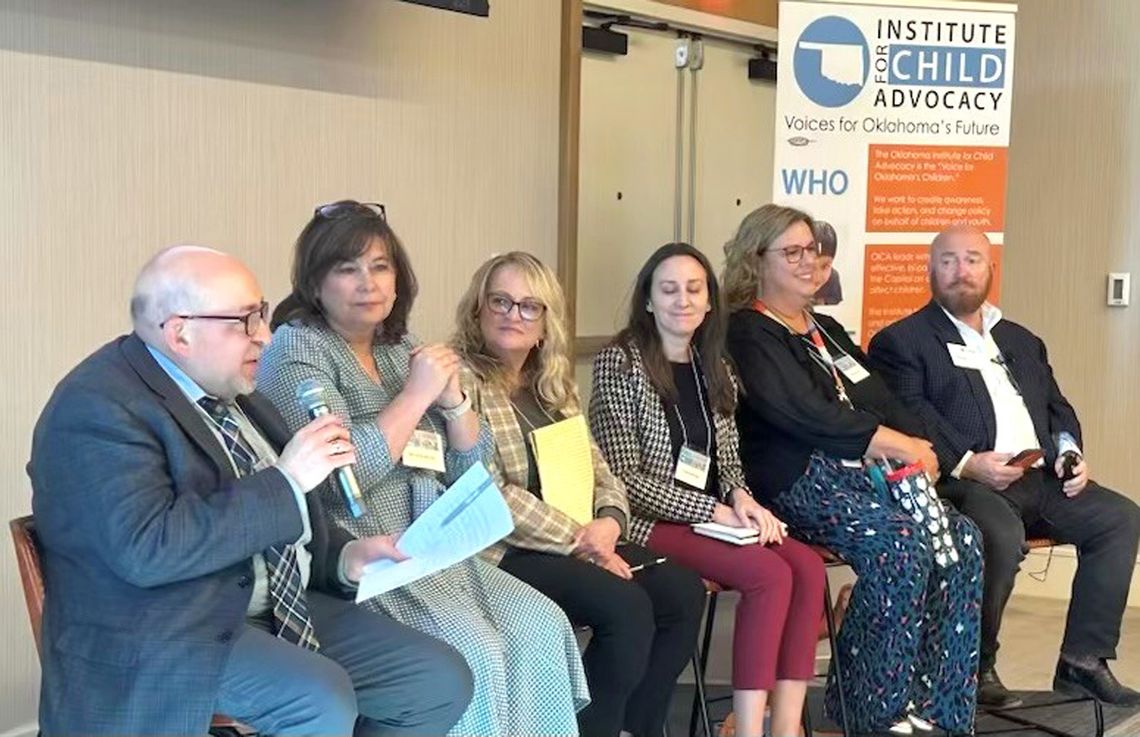OKLAHOMA INSTITUTE FOR CHILD ADVOCACY / From the desk of Joe Dorman
The 2024 Oklahoma Institute for Child Advocacy (OICA) Fall Forum wrapped up last week with more than 100 conference attendees spending part of four days helping shape a legislative agenda for the upcoming session.
The conference focused on four primary policy items:
• Access to health support programs.
• School learning loss issues.
• Childcare/paid family leave policies.
• Support programs for foster families, bridge parents and biological mothers and fathers.
I will touch on one point from each of the dialogues in this column, and we should have the full agenda ready for distribution next week.
Under the category of access to health support programs, the gathering delved into access for children’s health insurance and ways to increase enrollment numbers. Currently, it is estimated that about 7% of Oklahoma children (about 70,000 children) are not enrolled in any program; about half of those would qualify for SoonerCare, the state’s Medicaid program.
Despite expanding Medicaid a few years ago, we are still facing a significant problem in Oklahoma with enrolling those under eighteen. OICA is partnering with Legal Aid Services of Oklahoma to distribute information in twenty rural counties to students in schools and children in daycare. If you would like to see if you or someone you know qualifies, go to myokplan.org or call (833) 465-7526 to check.
In the school learning loss conversation, the group discussed behavioral issues tied in with forms of punishment. OICA will renew our efforts to seek a law forbidding corporal punishment in schools as a punishment for students with special educational needs. This bill made it through the Oklahoma Senate but was held up in the final days of the 2024 session. We are working with lawmakers to renew this for 2025, and we will certainly keep you updated.
On top of that, we will also be prepared for any effort to implement out-of-school suspensions for Pre-K through fifth grade students; instead, we will encourage schools to not send children home, which forces parents to take time off from work or pay for costly services to watch the children while they are work. Additionally, this type of suspension often leads to worse behavior by teaching the children they are “bad,” and data shows this leads to increased percentages of juvenile misbehavior and eventually incarceration.
With the topic of childcare and paid family leave, OICA will work with lawmakers to expand upon their work from two years ago to provide paid leave time for state employees and educators who are mothers.
We would like to see this also include time off for fathers. We also encourage examining leave policies for those who adopt children and for those who become foster parents to allow them time to acclimate to their situation, hopefully reducing down the number of placements foster children receive if there is time for all to adjust to the new situation.
Additionally, with support programs for those with children in the state system, we would like to see an increase in payment for services to foster families, along with providing funding for those grandparents raising grandchildren.
Many of these Oklahomans are living on fixed incomes as they have often reached retirement and Social Security age. By providing some type of financial assistance, this will improve the odds that the youth do not end up in a foster care setting.
As we finalize the document, we are also in conversation with several lawmakers to address key points from the agenda. The request deadline is December 6 for lawmakers to submit legislation ideas, so we hope that many of these points will make it past this first hurdle.
Thank you to our sponsors and those who helped make this a very successful Fall Forum!




